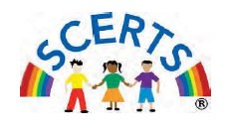Service Delivery Offer
Telford EPS are excited to announce the pilot of our refreshed and enhanced Educational Psychology service delivery model, designed to better support the needs of our schools and students across Telford and Wrekin.
Schools will be supported by a Lead Educational Psychologist (EP) who will be working closely with a dedicated team of Trainee EPs and Assistant EPs to provide comprehensive support and a bespoke action plan for each setting.
Schools will be grouped into localities to foster peer support, share expertise and pool resources effectively. This model aims to build a strong network of collaboration and mutual learning.
Our enhanced service delivery model is represented in the diagram below. At its core, this pilot endeavours to support schools to further promote inclusion and achievement. We aim to offer a comprehensive portfolio of professional development that will empower you to support the needs of your children and young people in these complex and changing times. Our service delivery will be bespoke and will involve us working closely with you to identify your priorities and support you moving forward.
Central to our offer is the aim to support the professionals working in schools both in terms of their professional development and emotional wellbeing. We would also like to reach out to the communities around your schools and offer support and advice to families and networks. Of course, there will be some children and young people who present with more complex needs, and, for those children and young people, we will support you in thinking about how to move situations forward for them and with them.

At Telford and Wrekin EPS, we are committed to supporting schools through our universal offer, which promotes psychological wellbeing across educational setting. Our aim is to build confidence and capacity through preventive, evidence-informed approaches.
Our universal offer in includes staff training on the following...
Trusted Adult
We know that children choose who to speak to when they are worried about something. It might not be those with pastoral roles, rather anyone who is in the school. This training is aimed at all adults who are in contact with children in your school. It will support you to develop the skills and confidence to have supportive conversations should a child approach you.
Neuro-affirming and Inclusive Practices
'Neurodiversity' refers to the unique neurological variations within the human mind (Walker, 2014). Embracing neuro-affirming practice, where all differences are accepted and valued, allows us to truly support our children and young people to thrive. This training will explore neurodivergence through a strengths-based, holistic lens, reflect on neuro-affirming principles and how to embed these across the curriculum and into the school ethos.
Barriers to Education: Exploring EBSA
This session will explore EBSA (Emotionally Based School Avoidance) and barriers to education through the lens of the WARMTH model (Wellbeing, Affirmative Practice, Relational Approaches, Mutual understanding and partnership working, Timely responses to need, Holistic support for young people).
Systems around the child
Making sense of children's behaviour through the systems around them can help to understand what is happening for the child but also what strategies may be most effective. This training will introduce two models (Interactive Factors Framework (IFF) (Fredrickson and Cline, 2009) and Bronfenbrenner's ecological systems model (1994) and guide participants in how to apply to their work.
Emotion Coaching
Emotion Coaching is based on the principle that nurturing and emotionally supportive relationships allow for the promotion of outcomes and resilience for children and young people. This approach serves to support emotional literacy and regulation through engagement, validation and providing a sense of security.
Childhood Experiences of attachment and trauma
This training will support settings to understand the impact of childhood experiences of attachment and trauma on children’s mental health and wellbeing, their behaviour and learning. Attendees will gain an understanding of early childhood brain development and functioning, attachment styles and adverse childhood experiences (ACEs), allowing them to become more trauma-informed in their practice. We will explore strategies and approaches which staff can use to make their setting a ‘secure base’ for students with attachment and trauma experiences, allowing them to feel safe, accepted, regulated and connected.
An Introduction to SCERTS
An introduction The SCERTS Model. SCERTS is a research-based, multidisciplinary framework with a focus on developing social interaction and communication skills through fostering emotional regulation. This session aims to develop a basic understanding of The SCERTS Model and the different ways in which it can be applied in practice, with a particular focus on working in partnership with families and supporting our children and young people to work towards meaningful and developmentally sensible outcomes.
The Psychology of Learning
The psychology of learning focusses on how children and young people learn and develop. We will explore different theories of cognitive development, alongside strategies to support children with their individual learning needs. Trainees will gain an understanding of the relationship between wellbeing and our ability to engage in learning and reach our potential. We will explore the idea of ‘academic self-concepts’, and the impact of low confidence on engagement and learning. Practical strategies will be shared and discussed.
Neurodiversity in Girls and Women
This professional development session for schools, focussing on neurodiversity in women and girls will include exploration around what neurodiversity means and how it presents in girls and women. Throughout the session, we will share helpful resources, with consideration of neuroaffirming language practices and an opportunity for a Q&A session.
Exploring the PACE approach
An introduction to PACE principles for teachers. The PACE principles which stand for Playfulness, Acceptance, Curiosity and Empathy, are widely used in the UK education system, particularly to support children who have experienced trauma. Developed by clinical psychologist Dan Hughes, these principles aim to create a safe and nurturing environment for children, helping them to feel secure and understood, and to thrive. This session will explore ways in which PACE in schools can help create a supportive environment in which children can thrive academically and emotionally.
In addition to our universal support, we provide a bespoke offer tailored to the unique needs of the individual schools, settings, and teams. This offer is developed collaboratively to the priorities identified by school staff. leadership teams, and the wider community.
Applying SCERTS
The SCERTS Model is a research-based educational approach and multidisciplinary framework that focuses on developing social interaction and communication skills through emotional regulation. This session will explore the core challenges faced by children and young people presenting with differences relating to social communication and interaction and will look at how to apply the SCERTS model in partnership with children and their families.
Staff Wellbeing
Staff wellbeing is of paramount importance. This session considers the meaning of wellbeing, its impact on individuals and the workplace, common mental health issues and the causes of work-related stress. The session also explores what positive staff wellbeing means in practice, and how you can help to create it for staff and the whole school.
Precision Teaching
Precision teaching is an individualised structured programme for children and young people who are experiencing needs related to their functional skills development in literacy and numeracy. Precision teaching is an effective approach to boosting fluency and confidence in reading, writing and numeracy skills. This session focusses on the evidence-based structure, incorporating the teaching, probing and charting that will be utilised daily with a child, on a 1:1 basis with an adult who has received this training.
Behaviour and Communication in the Early Years
Communication is much more than what we say, it includes facial expressions, gestures and how we share attention with others. This session focuses on the close relationship between communication and language needs and presenting behaviour. This relationship is so important in the Early Years, as children are still at the stage of acquiring these key skills for effective communication.
Emotional Literacy in Schools
These sessions for pastoral and support staff focus on supporting the social and emotional needs of children and young people. A bespoke plan will be developed through consultation with the school and identification of areas of need. Topics of exploration could include:
- Emotional regulation
- Self-esteem
- Social skill development and relationship building
- Supporting feelings of anxiety
Project Work
We support schools with school-wide priorities using our applied research skills and understanding of school improvement and development. This can involve:
- Bespoke research and development
- Policy review
- Learning Walks and Group Observation
Relational Practices and Restorative Approaches
A bespoke whole school professional development package focussed on exploring relational practices and restorative approaches, following on from our universal ‘Introduction to Restorative Practice’ professional development session. Behaviour in settings/schools is high on the government’s agenda (DfE, 2024). Relationships should be at the heart of behaviour management and culture. This session will explore and develop an understanding of relational practice alongside a restorative approach to supporting behaviour and will explore the significance of positive relationships. The training will also include a brief overview of the principles of Emotion Coaching.
Neurodiversity Outreach
The EP-led Neurodiversity Outreach program will enhance the understanding and inclusion of neurodivergent children and young people in our settings, regardless of diagnosis. EP team members provide guidance to schools and parents/carers, fostering positive relationships and enabling collaborative, solution-focused discussions. The focus is on understanding neurodivergence, making reasonable adjustments, and implementing supportive, neuro-affirming strategies. Activities in our Neurodiversity Outreach program include:
- A collaborative environmental audit from a neurodivergent perspective
- An initial, solution-focused meeting with home and school
- Co-creating appropriate goals and an action plan of supportive strategies
- A review after an agreed period
We recognise the importance of support for professionals and prioritise collaborative approaches. Our Service Delivery offer includes support for professionals in a variety of contexts.
Group Consultation
Group Consultation offers time for professionals from schools within their EP locality to share cases and discuss strategies in depth under the facilitation of an Educational Psychologist who can further advise on strategies to support.

Adapted from Farouk (2004) by Dr Chris Moore
Wellbeing Supervision
As a service, we recognise the workload and increasingly complex cases that education staff are consistently managing, and the impact that this can have on wellbeing. We offer 1:1 or group supervision to any staff in school (both teaching and non-teaching). This provides a space to explore any uncertainties and/or difficulties in work, to problem solve, to reflect on practice and to share any resources and/or relevant information.
Staff Drop Ins
Staff drop-ins will provide teaching staff the opportunity to problem solve class-based
situations with a member of the locality team. Staff drop ins will be facilitated on site
and will be open for all staff to ‘drop in’ and discuss any arising issues or concerns.
We recognise the vital role parents and carers play in supporting children's development, learning, and emotional wellbeing. That's why our community offer focuses on empowering families through accessible, psychologically informed support.
Parent Workshops
We provide parent workshops around a variety of topic areas and/or themes, with all parent workshops tailored to the school’s requests. Examples of parent workshops include:
- Supporting children and young people's behaviour
- Understanding and supporting anxiety in children and young people
- Establishing habits and routines
- Supporting transitions
- Promoting emotional wellbeing and positive mental health
- Emotional regulation
- Understanding the graduated response to SEN
Parent Drop Ins
In addition to parent workshop, which cater for groups of parent/carers at a time, we provide parent drop ins where parents can access individualised support from a member of the EP team. Parents/carers can attend slots of up to 20 minutes, either on site or remotely (via telephone or Microsoft Teams) and can discuss or explore any areas of concern and/or interest. Examples could include:
- Advice around Special Educational Needs (SEN)
- Supporting children and young people experiencing anxiety
- Supporting positive relationships
- Supporting a child or young person’s learning, social and emotional needs at home
Targeted Support is offered for children and young people who present with more complex needs, and, for those children and young people, we will support schools and families in thinking about how to move situations forward for and with child or young person.
Consultations Around a Child
Consultations are offered to support with complex individual cases. These will include a discussion with members of staff and, where appropriate, an observation of the child/ young person in the setting. Consultations focus on a child/young person's strengths as well as identifying and exploring any needs and/or areas of difference. Consultation provides a collaborative space, led by a member of the EP team, to identify supportive strategies and set realistic, sensible outcomes to work towards.
Circle of Adults
The Circle of Adults is a problem-solving process that takes a detailed look into meeting
the emotional needs that commonly underlie challenging behaviour in schools. The
approach is co-facilitated and designed to reach a deeper understanding of a young
person in order to generate a set of hypotheses and strategies. The approach is intended
for use with those displaying behaviours that challenge, who may in turn be at high risk
of permanent exclusion.
Microsoft Teams Drop Ins
A problem-solving session will be offered to support a young person via teams. This
could involve any member of staff, working to support children and young people
with more complex needs.
Pupil Workshops
We offer pupil workshops to groups and/or cohorts of pupils to support areas of identified need. The topic of the workshop can be tailored according to setting’s identified needs.
Examples of available workshops include:
• Supporting pupil’s experiencing anxiety
• Friendships and building positive relationships
• Transitions
• Exam stress
Information for Families and Young People |
Information for Educational Settings |
Frequently Used Approaches |
About us
|








